Checking out the Harriot Tubman museum by #oprah for an upcoming #vlog #history #ishowspeed #fyp
OPRAH.COM
Watch OWN
Oprah Talks to The Underground Railroad Author Colson Whitehead
Colson Whitehead's spectacular new novel,The Underground Railroad, is inspired by real-life events—but it's a feat of imagination. It tells the gripping story of a female slave on a heroic quest to escape captivity. And it's Oprah's new book club pick.
By Oprah Winfrey
oprah's book club
Photos: Rob Howard
I was 14 and in my local library when I read "Ain't I A Woman?," the speech Sojourner Truth delivered to a suffragist convention in 1851. After 30 years in bondage, she had become a human rights activist, advocating for women and speaking out against slavery and racism. Her words awakened something in me, and I've never forgotten them, especially the last paragraph: "If the first woman God ever made was strong enough to turn the world upside down all alone, these women together ought to be able to turn it back, and get it right side up again!" On that day I began my journey as a student of African American history. Decades later, I'm still consuming slave narratives, histories, and novels that help me feel the heat of my ancestors every day.
I was at home in California when I received an advance copy of Colson Whitehead's novel The Underground Railroad. I'd never read anything by Colson (he's published five previous novels and two works of nonfiction and was a Pulitzer Prize finalist), but everything I'd heard about the book—the way it shape-shifts and refracts time and history through the figure of one 16-year-old girl—made me eager to start.
The opening sentence got my heart pumping right away: "The first time Caesar approached Cora about running north, she said no." I thought, Okay, you got me. What exactly is Cora saying no to, and why? Who is Caesar, and how many more times will he have to ask? I wanted to know everything. I found out that Cora is a third-generation slave living on the plantation where her grandmother died, where her mother abandoned her. She has no intention of trying to leave. But Caesar gets her thinking. He leads her to an actual train, one that travels underground and can transport them out of Georgia to a new life. Here I paused. I've been fascinated by Harriet Tubman for many years, and I knew that the Underground Railroad—the network of secret routes and safe houses that evolved in the 19th century to help the enslaved escape north—didn't involve real trains. But Colson's conjuring was so vivid, I could visualize it. The telling was so convincing, I had to double-check to be sure I had my facts right.
As I read, I found myself feeling what Cora feels, being horrified all over again by slavery, and then marveling at the grace and kindness of strangers. Time and again, people risk everything to help this girl. I thought about what real strength is—how Cora keeps getting up even though she doesn't know what new atrocities might be right around the corner. I couldn't read the book in one sitting. I had to stop, process what I'd read, let the anger and tears come, and then go back in. Cora is a fictional character, but her odyssey—a true heroine's journey—helped me to better understand the past, as well as where we are as a people today. And in the end, that's what great literature does. It doesn't tell you what to think or how to feel. It simply creates the space for those thoughts to happen on their own.
After turning the final page, I knew immediately I'd read something that would never leave me. It had to be my next Oprah's Book Club selection, and I couldn't wait to sit down with the author.
OW: How did you come up with the idea of having the Underground Railroad be an actual train, with conductors, stations, and tunnels?
CW: A lot of people, when they first hear about the Underground Railroad, think it really is a subway or a locomotive. When they find out it's not, they feel a little disappointed. So I thought, What if it was a literal underground train network traveling from state to state, with each state it goes through representing a different opportunity or danger?
OW: You zero in on something in the book that puts me in mind of what Toni Morrison writes in Beloved, about the slaves who never "leave the yard," yet eventually make the decision to try to get away. I imagine myself in that position and know for sure I was born at the right time. I couldn't have done what Cora does. I would never have left the yard. I wouldn't have had the courage.
CW: I wanted to explore how a character who knows only the tragedy of the plantation finds it in herself to take that first step. And once you take that step, how do you keep going on a trip that will probably take years—if you aren't caught or killed first—that might require you to wait for a full moon to guide you at night or to depend on a complete stranger not to betray you?
-
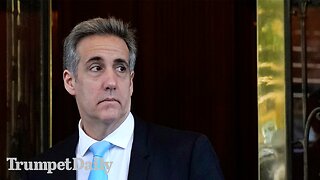 1:04:07
1:04:07
Trumpet Daily
1 day ago $1.81 earnedHot Take for the Regime: Michael Cohen Has No Credibility - Trumpet Daily | May 17, 2024
2.65K8 -
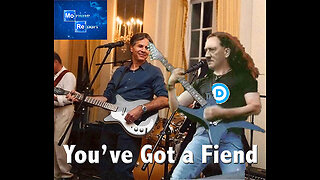 57:09
57:09
CutJibNewsletter
18 hours agoYou've Got a Fiend - Cut Jib Newsletter Speaks!
40 -
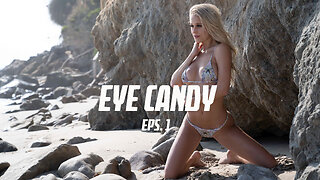 LIVE
LIVE
Kaloopy - The Eye Candy Channel
4 hours agoKaloopy - Eye Candy - Episode 1
339 watching -
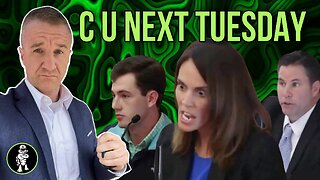 3:09:47
3:09:47
Turtleboy Daily News
10 hours agoEp663 - Karen Read Trial: Matt and Jen McCabe, Colin Albert Testimony
34.5K38 -
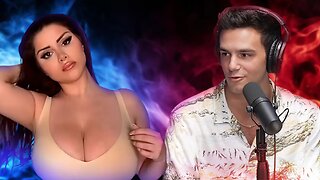 4:47:16
4:47:16
SonnyFaz
5 hours agoSonny Debates OF Chug Jug Girl LVL 97
26.4K29 -
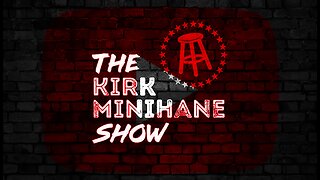 1:06:35
1:06:35
The Kirk Minihane Show
8 hours ago420 Show
27.4K4 -
 31:28
31:28
Alexis Wilkins
17 hours agoBetween the Headlines with Alexis Wilkins: Wisconsin Supreme Court, Psaki's Book, Debates, Border
33.1K30 -
 LIVE
LIVE
Right Side Broadcasting Network
12 days agoLIVE REPLAY: President Trump Headlines the 153rd Annual NRA Meeting - 5/18/24
5,637 watching -
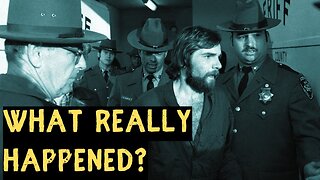 35:50
35:50
TheTapeLibrary
1 day ago $0.02 earnedThe Disturbing True Story of The Amityville Horror
27K15 -
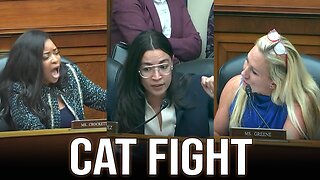 8:13
8:13
Memology 101
1 day ago $0.03 earnedABSOLUTE CHAOS as MTG, AOC & Crockett trade insults during AG Garland Contempt Hearing
34.2K134